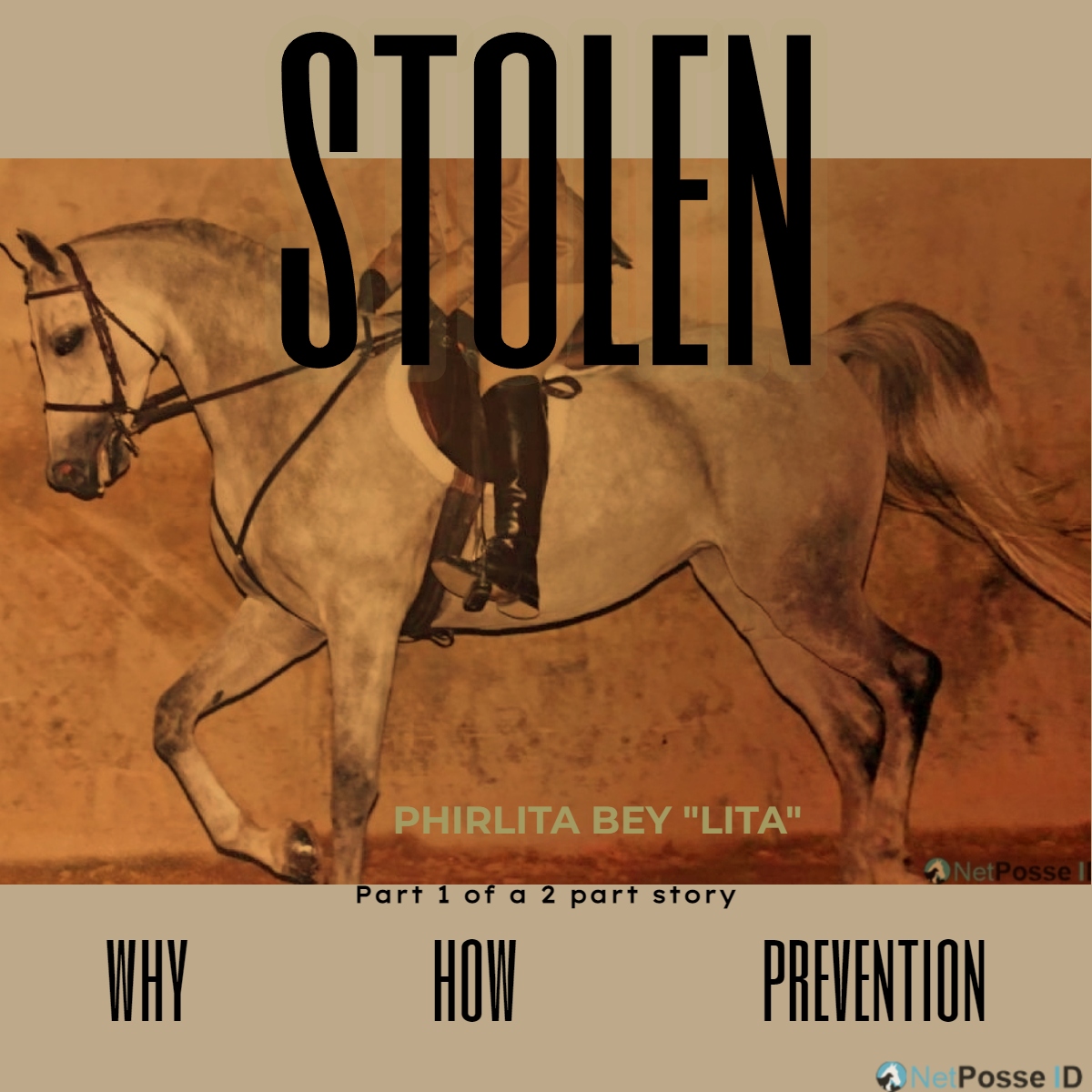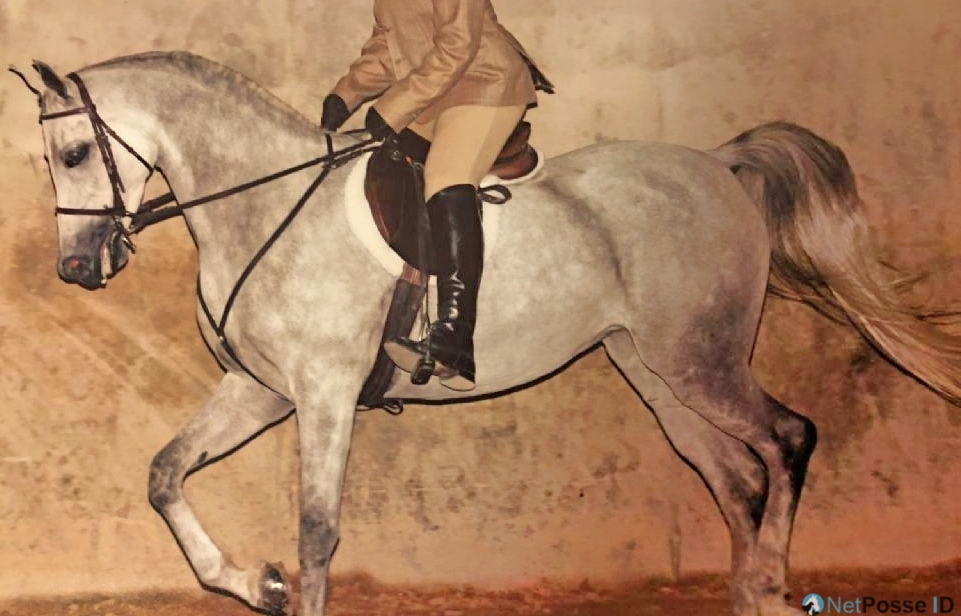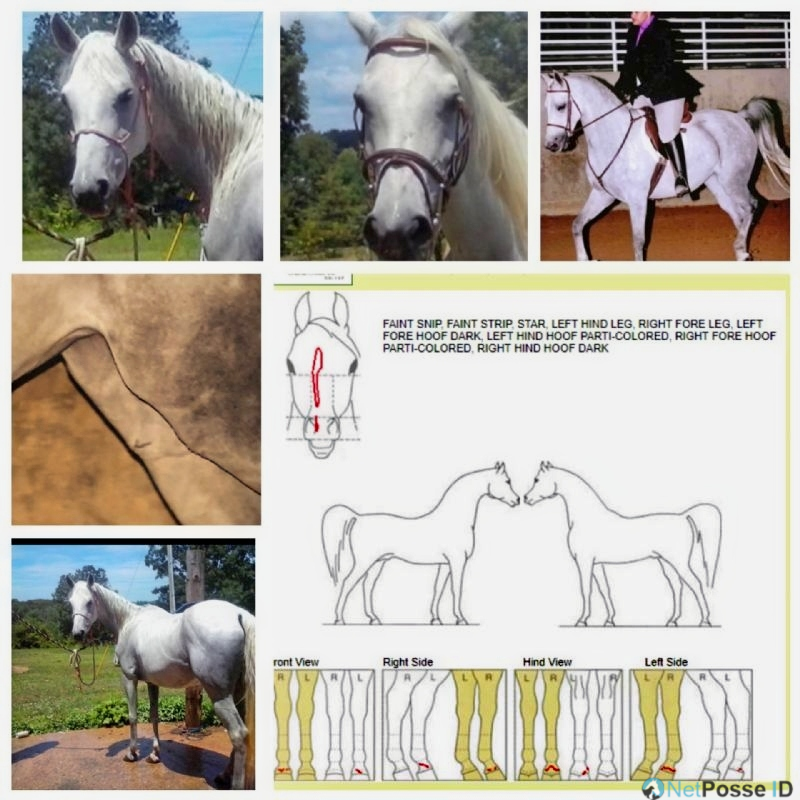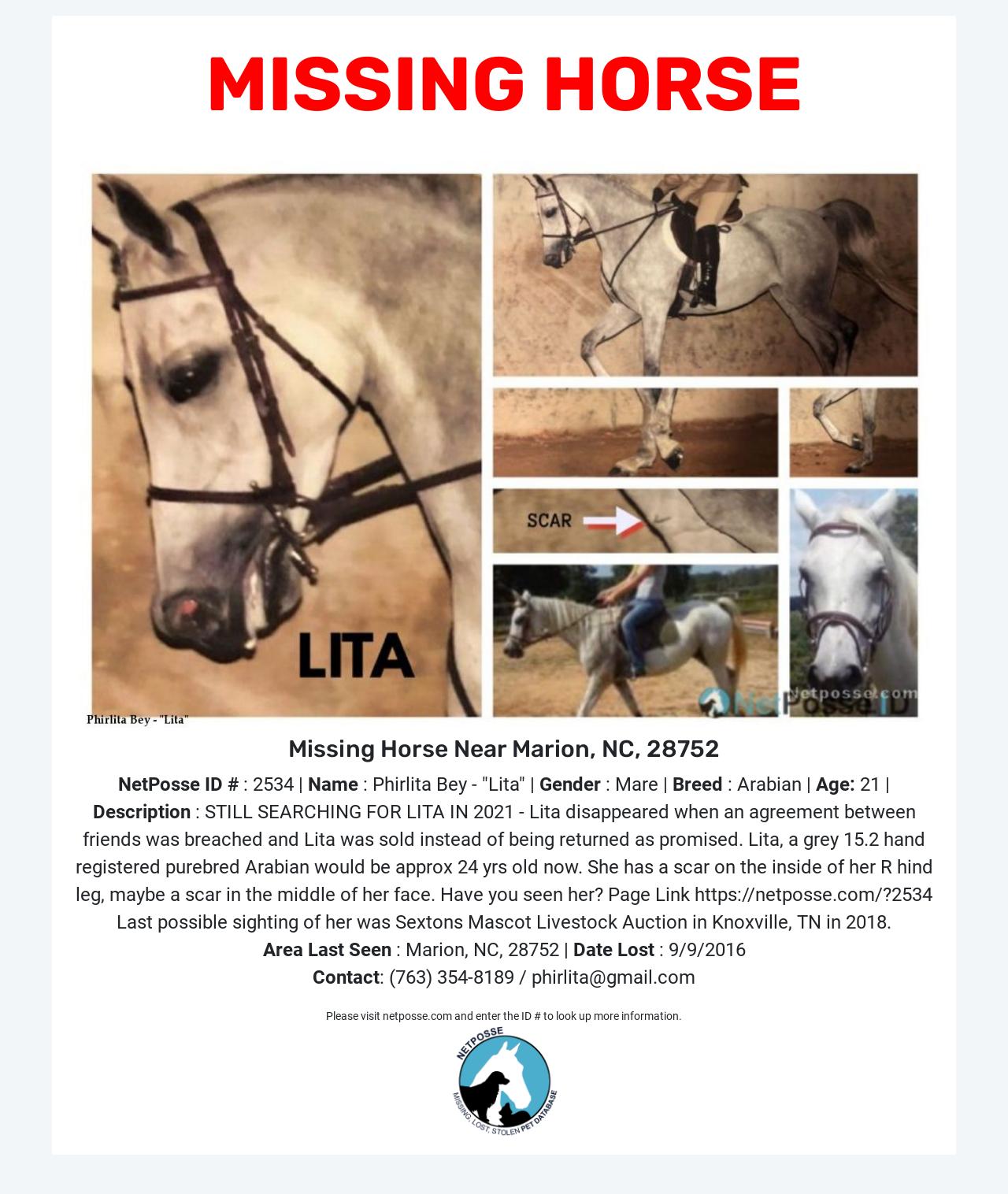by Gabriela Quinn
The world is filled with very bad people. They make up a sizable population in the horse industry harming not only other people but innocent horses.
Though there is always good within the element of bad, some are those we entrust to be ethical and do what's right, don't. It includes law enforcement, those in esteemed positions like judges, and those having made oaths not to harm animals like veterinarians and other industry professionals who look the other way.
The list continues with barn managers, barn owners and trainers, to the very seedy bottom of the barrel scum that accumulates in water buckets that are not cleaned, like kill buyers and dealers. There are also those who disguise generational 'family businesses as 'Feed & Saddlery', welcoming children for riding lessons, but also 'help people out' when they no longer want their horses by sending them to very inhumane deaths abroad for a fee.
An example, according to a 2010 Boston Globe article titled 'Not all the pretty horses come home,' Maine farm plays role in export to Canada slaughterhouses' (Boston Globe)
is Brenda Hemphill owner of the business in Vassalboro who stated that after all, "people need to make money".
For those who argue that the slaughter process for horses is humane, a lack of education prevents them from understanding that as intelligent, prey animals with an instinct for flight, it is exceptionally cruel. If horses are not terrible injured or have acquired difficult behaviors from use, they are shuttled off to be lesson horses in summer riding programs at local riding facilities. Providing a horse with a kind end to life is so simple through humane euthanasia, but is not even considered. They are used until they have nothing left.
Then there are those who tip the scales like auctioneers, show officials, stewards and breeders creating even more life, knowing in a life that spans 20-30+ years, they will face uncertain futures. Finally there are the horse owners who go through horses like shoes, uncaring of their fates, throwing them out when they're scuffed from use. Like shoes they care only of how the horse can serve them.
Many of these people seem so nice, so kind and giving but they have learned to do what it takes to make you feel they are a friend. The commonality is they are not to be trusted. They don't care about the horses. Who's to blame - the kill buyer, the breeders, or the numerous people who support the industry, including the vast majority of women who dump their horses rather than kindly and humanely euthanize because they don't want to spend the money.
For those who have never had pets or experienced the relationship and bond with a helpless animal, and don't realize horses are sentient beings worthy of kindness and care, it is one of the most unselfish relationships one can have because we don't expect anything in return as we do in other relationships.
To steal: to take another person's property without permission or legal right, and without intending to return it. There are also other forms of stealing which are a regular occurrence in the horse industry. An example is when a person is entrusted morally, ethically, by word or written contract with someone's property and does not return it in the condition in which it was given, or return it at all. Instead, as is often the case, deviously making money on the horse, using them and ultimately placing them in jeopardy. It happens all the time and people often get away with it.
Social media has helped bring attention to the practice but it has also aided unsavory people who use fake identities and have fake accounts. Certainly the person who owned the horse bears responsibility, however how can someone who has been trusting, naive of the ways of the horse industry be condemned.
The world in which horses are used and seen as commodities is rough, full of unscrupulous human beings, many - the kinder sex, are women. Here you will find some of the most low, worthless, evil people, their hands connected to the fate of every horse they touch.
Stealing a Horse There are various ways to steal a horse. It requires deceptiveness, callousness and a disregard for the animal's life. Generally horses are stolen to benefit the person who commits the act. Even though a horse is seen as 'worthless' due to injury, illness, age or behavioral issues, there is always an unscrupulous person who sees the monetary value, including 'kill buyers', dealers and those who scout for them- more on this in Part 2. Though the industry has it's share of men who put little or no value on animal suffering, the vast majority of these people are women.
Why would anyone steal when it's easy to obtain a horse for little or nothing through advertisements on social media and even Craigslist? People make money on horses in 2 ways: for value in the meat market in Canada, Europe, Mexico and others countries not necessarily due to a starving population, but because horse meat is seen as a delicacy. The other, for the resale value of the horse.
How Horses are stolen from boarding facilities, private homes and horse shows regularly. Horse thieves make fast and easy money unloading illegally obtained horses to killer buyers and slaughterhouses where they are processed (killed) so quickly, it is virtually impossible to recover them in time to save their life. Though slaughtering of horses stopped in the U.S. many years ago, it is known in horse circles the practice continues in a more discreet fashion. In resale, horses easily change many hands quickly and are transported out of state, travelling thousands of miles in days, impossible to track.
Prevention: Among the tips include warnings about what some horse owners routinely do like leaving horses unattended for hours, and keeping halters on horses kept outdoors 24/7. Boarding facility charge to keep other people's horses safe and should not be without theft prevention. A dog on the premises is not enough. Boarders should ask if there are motion detectors, sensor lights, monitors or alarm systems. Horses can easily be microchipped. Some owners worry about aesthetics, but what's more important ? Documentation is crucial and should be updated regularly to include photos of every part of the horse's body. Videos distinguishing movement in all gaits with & without a rider are important.
Each year, about 50,000 horses are stolen by bands of organized thieves who often work one area or state. The actions taken in the first 24 to 48 hours are critical to recovery. The task of searching for your horse is horribly unpleasant and heartbreaking. In order to find yours, you will see many in slaughterhouses, livestock auctions and parking lots filled with animals on their way to death, all dumped by their owners in need of rescue. Some will be saved but most will not.
A 501(c)(3) organization NetPosse ID, aka Stolen Horse International has been helping people find their horses for over 25 years. Pt 2 of this article in the March Village (and on Stolen Horse International's website) will provide more information including what inspired Debi Metcalfe President, to help other horse owners.
A note from BlixxHorses: To some 'horse people 'Lita's owner may seem naive, however it's not the trusting nature of the person that is at fault, but the deviousness of those in the horse industry.
I personally experienced the same from a barn manager at a Kennebunk facility. On a January day in 2001 she abruptly screamed "get your horses out now" . It's not easy to find a suitable facility for 2 horses. If it wasn't for my threat to call the police & file a lawsuit, and the owner who interceded, I would not have had a choice. Every day my horses remained I was concerned they would be neglected or abused in some way by this woman- who still manages the property. Fortunately, she was told to take a vacation for the remainder of the time my horses remained.
My first horse, an abused Thoroughbred named Blue was sold to me surreptitiously by a barn owner in North Berwick. The horse did not belong to her but she thought she could get away with making money not only on me, but the actual owner who was in Rhode Island. When she finally provided the bill of sale it read the horse was free and the fee was for a saddle.
It happens all the time. It is a practice supported by a majority in the industry.
Please share. Maybe you can help find Lita
Lita's Story Registered: PhirlitaBey, by Autumn Bennett
In 2009 I found myself in a position that I never thought or planned on being. I was working on a private farm in Concord, NC. All was great, until the day it became clear the job was not as it was presented. It was not a good fit.
I had planned on two weeks to finish up and find a place for Lita in my home state of Minnesota. However, the woman changed her mind and I was given one day to move her. Panicked, I didn’t know what to do and didn’t know anyone in NC. I reached out to a friend I used to work with, who had a friend in NC who agreed to take her for use in his therapy program. He wanted copies of her registration papers and promised that if it didn’t work out she would come back to me. That didn’t happen. I checked on her regularly but felt she was safe. I also made a trip back to NC to check on her.
In 2018 I learned the truth. She had been given to a woman three years earlier to work on bad habits she’d developed and then to sell her. The man told me once that she was with a client who really bonded with her. I was ok with that because she was really helping this girl and he promised she would come back to him if it didn't work. During that period every time I contacted him I was told she was doing great. I only found out the real year she was sold due to a Facebook friend who found a 2015 ad on Craigslist. I know I should have had a contract but I trusted him because he was a friend of a friend. He did not give a reason for the deception.
I started posting on Facebook. Someone saw my post and contacted me. She had found the lady who sold her. I reached out to her but she conveniently forgot who she sold her to. I continued contacting her to see if she remembered anything with no luck. Sometime later another Facebook friend reached out to say they saw her at the Knoxville, Tennessee Livestock auction the summer of 2018. They had a picture of her that was taken off my Facebook page. They also had a copy of her registration papers. I’m not sure how they got the papers as I still have the original documents. I contacted the auction house, but without a tag number and date there was nothing they could do. That was the last sighting of my horse.
Lita was my baby. I became mom when her mother died and she was just 3 months old. We had a bond that was unique. I could kick myself for leaving her. My advice is, don’t trust anyone other than yourself to care for your animals.
INFORMATION and direct link to Lita's info: https://netposse.com/tag.asp?id=2534
Phirlita Bey, Polish Arabian mare D.O.B- 02/10/2001 Approximately 15 hands
She has a scar in the middle of her face and one on her right hind leg on the inside of her stifle, and likely has more scars by now. Lita was gray but now white now
I showed her Hunt seat but she could have gone western or be used as a lesson horse or for breeding. Every time I see horse that has been recovered, it gives me hope. If you have any information on Lita please reach out. Knoxville, Tennessee Livestock auction the summer of 2018. Thank you
Autumn Bennett Phirlita@gmail.com 763-354-8189
For additional photos/details NetPosseID 704.484.2165 www.netposse.org



